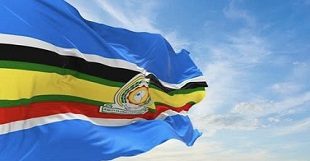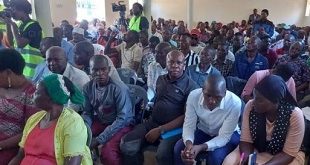
Kampala, Uganda | THE INDEPENDENT | A group of over 40 Civil Society Organisations-CSOs have called upon the United States government to listen more to communities as they release their next funding to tackle HIV/AIDS in Uganda.
The activists who also released a report dubbed, ‘the People’s Voice’ which documented experiences of users of HIV services asked that the US President’s Emergency Plan for AIDS Relief (PEPFAR), the programme that funds most of the HIV activities in the country to invest in a comprehensive treatment literacy program to equip people living with HIV with the knowledge that will help them demand quality services.
Dr Stephen Watiti, a clinician and HIV activist said that the lockdown imposed to halt further transmission of COVID-19 last year just exposed how ignorant people are about their drugs even as some have spent 10 to 20 years on HIV treatment.
With the restrictions on movement, Watiti says clients who shifted to nearby treatment refill facilities ended up with wrong medications because they couldn’t properly explain what they had been taking. Some he said, had to be sent away from facilities because they lacked clinical notes to track their treatment, which in the end, affects treatment outcomes and the end aim of suppressing the virus.
The call by activists comes at a time when PEPFAR is deciding how it will spend its bilateral funding for HIV. PEPFAR is required to engage directly affected communities in countries they fund in a planning and budgeting process called Country Operational Planning or COP process but often they engage with most policymakers to make allocation decisions.
Already, the US has committed to allocating USD 398.5 million to Uganda for a period between October 2021 to September 2022. But apart from funding client knowledge, the CSOs asked the funder to ensure that the implementers of their programmes pays community health workers involved in HIV care a minimum of USD 50 per month in addition to dedicating a funding stream for services that are targeted at children living with HIV.
The children have the the lowest virus suppressing levels that are affecting targets of achieving 95 percent viral suppression levels as recommended by UNAIDS.
Lillian Mworeko, the Executive Director of the International Community of Women Living with HIV in East Africa (ICWEA) said at the meeting that they are not moving a vote of no confidence in the current implementers of the HIV programmes in Uganda, but they are only pointing them to critical gaps that need to be filled if they are to make strides in ending HIV as an epidemic by 2030.
Uganda has adopted the UNAIDS 95 95 95 strategy that strives to ensure that 95 percent of people know their status, 95 percent of the HIV positive are enrolled on treatment and 95 percent of those on treatment to be virally suppressing in order to limit the chances of transmitting and also living a near-normal life. However, current Ministry of Health figures show some 156,247 people are estimated to be living with HIV unknowingly.
Also, the country still records 73,000 new infections annually, with the biggest number being adolescent girls and young women. When it comes to children, only 65 percent of the HIV-exposed children get tested and only 65 percent of those tested are enrolled on consistent treatment. As a result, only 48 percent of the children are virally suppressing.
The activists say a lot of money and PEPFAR programmes are working to ensure children are retained on treatment but these activities are not yielding and need a boost.
Responding to these concerns, Dennis Bwanika, a program advisor at PEPFAR Uganda office said the recommendations come in handy as retaining people on treatment is not just a problem in Uganda but in other countries where they operate.
He said another area they fund that hasn’t registered as much progress is uptake of Pre- Exposure Prophylaxis (PrEP). Currently, the annual target by PEPFAR is to reach 95,000 people which activists say is a small target.
*****
URN
 The Independent Uganda: You get the Truth we Pay the Price
The Independent Uganda: You get the Truth we Pay the Price


